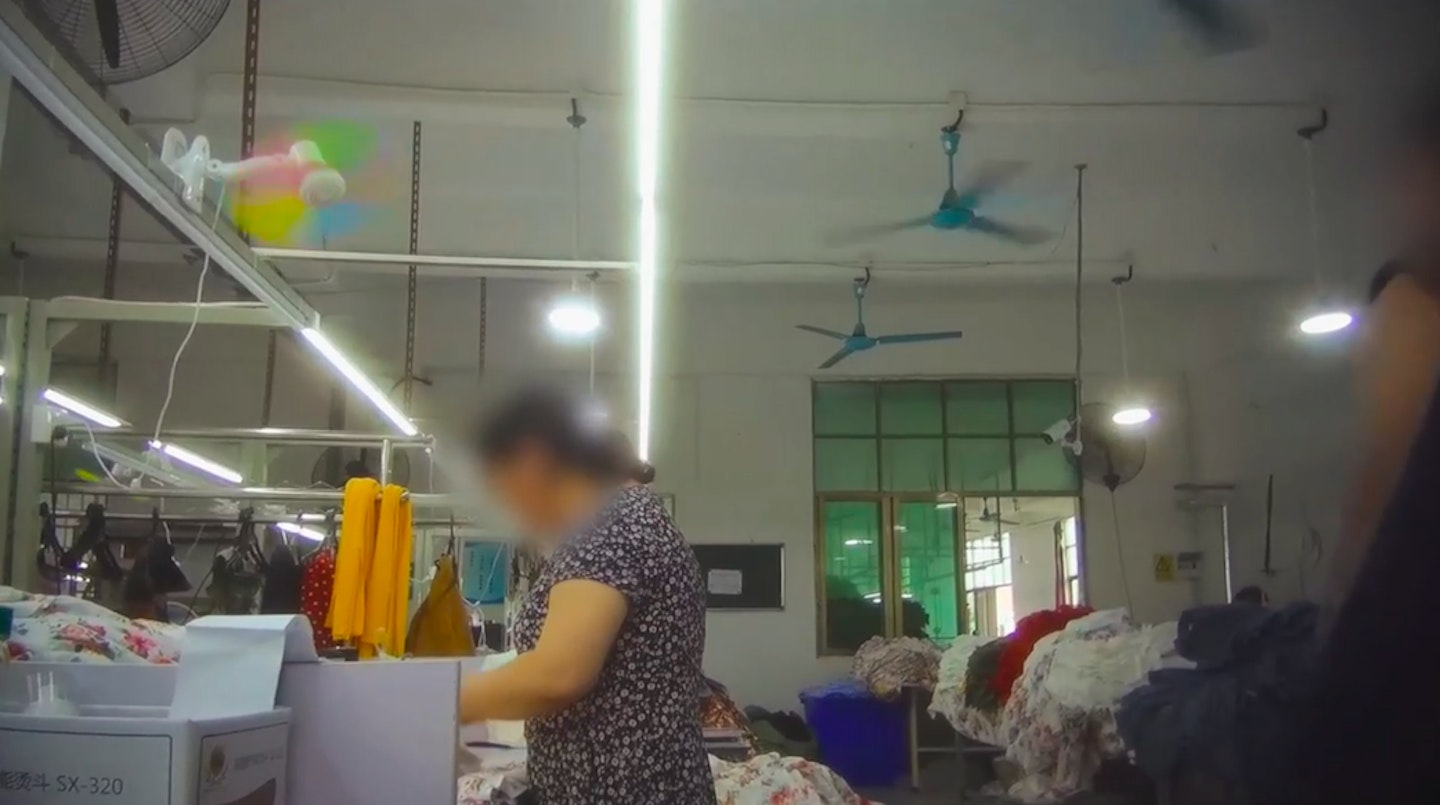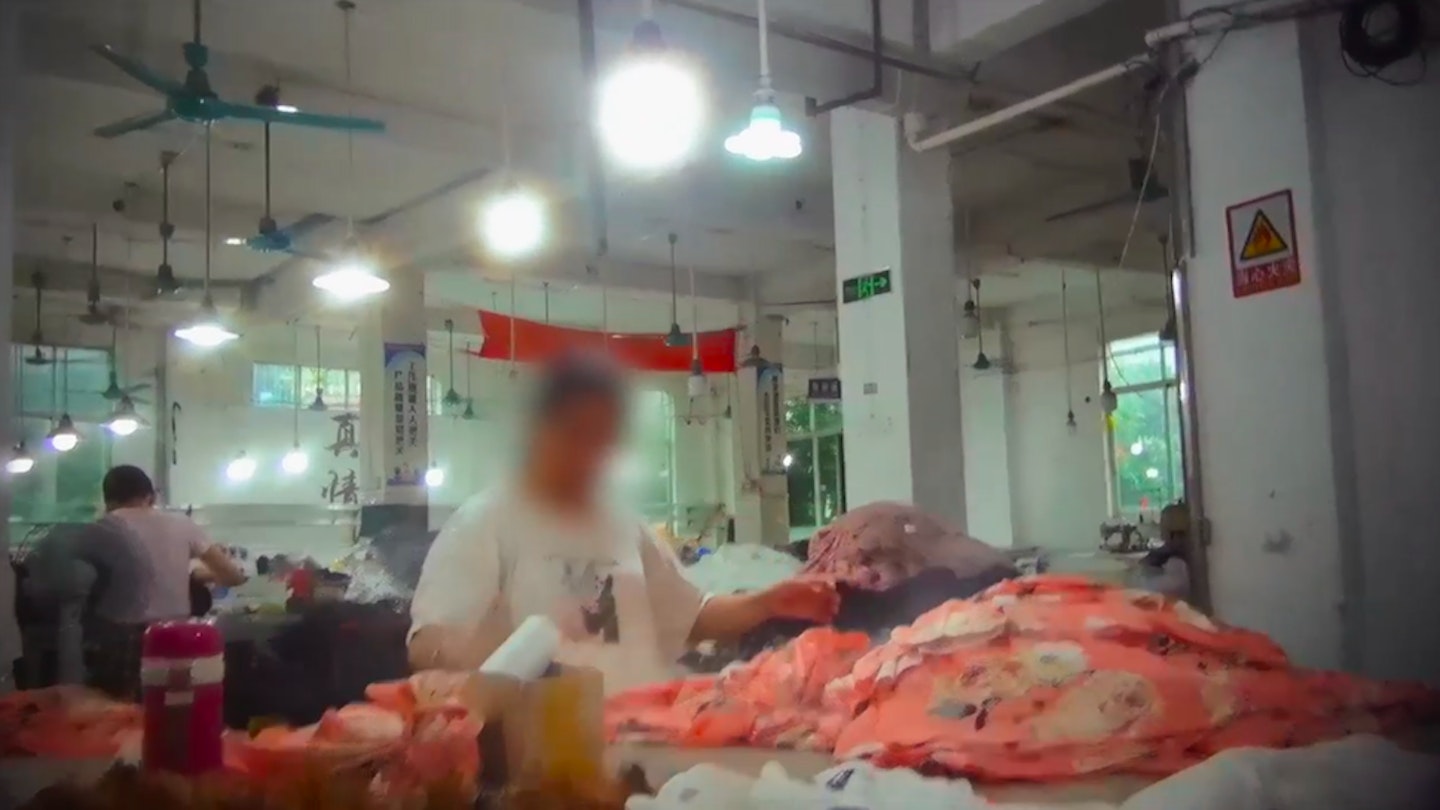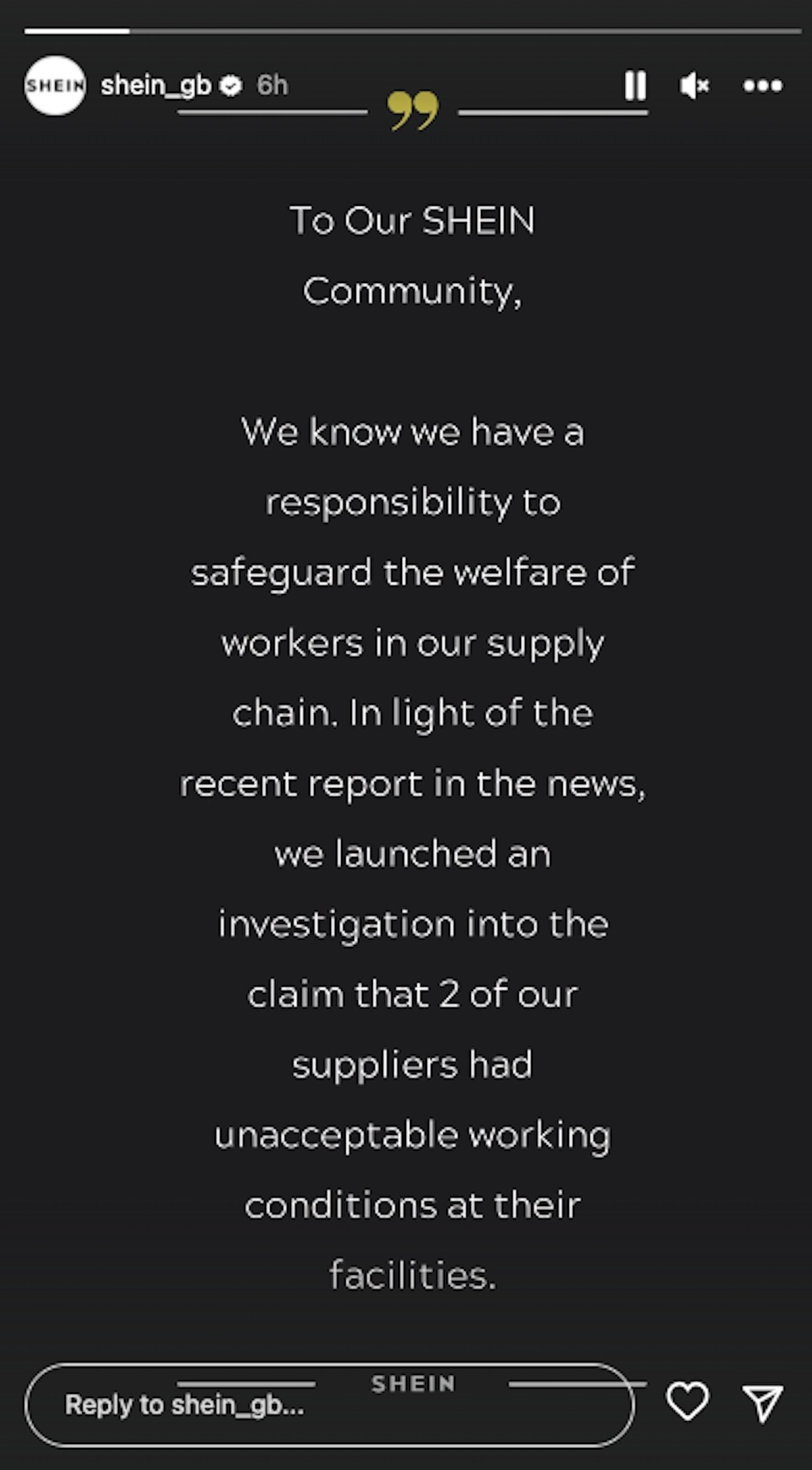Imagine working such long hours that you have to wash your hair in your lunch break because you're just too exhausted by the time you get home. Imagine getting one day off a month. Imagine having your first paycheck withheld and docked if you make any mistakes. For workers at one of the thousands of factories who supply Shein, the fast fashion behemoth valued at more than £80 billion, this is the reality of daily life.
In Channel 4's new documentary - Inside the Shein Machine: Untold - these grim revelations have been captured on film thanks to the work of an investigative journalist, Mei; the first person to infiltrate two of these factories with the use of hidden cameras. What she discovers is people pulling 17-hour shifts, often hunched over sewing machines until 2am or 3am, to make hundreds of garments a day. They make 3p per piece, on top of a daily base salary of £16.50, which is docked by £12 per piece if they make a mistake. These working conditions contravene the company's own code of conduct, as well as the labour laws of China. Iman Amrani - reporter for Channel 4, host for Al Jazeera - was shocked but not necessarily surprised when you think about the fact that a dress can cost as little as £4.49 on Shein.

'It was sad and disturbing to see that what people assume is going on is definitely going on. People are working in illegal conditions. It’s illegal. That’s the most important thing,' she says. Shein's conditions, where people are under immense pressure to produce orders so that they can be shipped as soon as possible, are the direct result of its business model, which operates a test-and-repeat method of production. As explained by fair fashion campaigner Venetia La Manna, Shein scrapes the internet for emerging trends and puts in a small batch order to be produced from a network of thousands of factories in Guangzhou, China, who then rely on an army of migrant workers. If the garment sells, they make more.
Amrani doesn't judge the people she interviews about buying fast fashion. 'Shein is focussing on young women and they’re not necessarily as clued up about how they’re being manipulated.' Instead, she conducts a deep-dive into exactly how the company has made its website into such an addictive shopping experience, incentivising its customers to buy - and buy quickly - by creating a sense of jeopardy. From the moment you open the website, you're bombarded with banners advertising free shipping for new customers, pop up vouchers that you can 'collect' if you sign in and discount codes that give you 30% off. Amrani also discovered that the website is seemingly misleading, with, for example, a countdown clock offering free shipping that simply restarts when it runs out. 'In the UK, as a consumer online, you shouldn’t be able to be treated like that,' she says.

Shein's algorithms are so sophisticated that they play on the insecurities of the people they're targeting to push more and more product. 'I find it interesting how it really plays into all of the empowerment language around fashion to do with plus size women. And also modestwear. I’m Algerian. I’ve really understood that a lot of my friends who wear the hijab find it difficult to get the clothes that they want. They really cleverly market and package everything in a way that you think, wow, you know exactly what nerves to touch. If I was a plus size woman, or wearing the hijab myself, I wonder what it would be suggesting to me?'
Amrani was worried that the documentary might not cut through the noise on social media to make an impact, but it's already getting attention. Georgia Portogallo, who was interviewed and owns a social media agency whose clients often promote fast fashion brands on their feeds, has said that she will no longer work with Shein. 'I think that's already quite a big win,' says Amrani. 'That’s an audience who wouldn’t necessarily have been very receptive to questions about fast fashion because that’s where their industry lies.' The documentary is peppered with clips from TikTok, where micro-influencers have become the de facto faces of Shein. In one, a woman holds up a pair of trousers with a belt loop that broke the first time she tried them on. She shrugs. 'It's so cheap you can't really complain.'

The economic crisis throws up an interesting question about the cost of clothing. What if people can't afford marginally more expensive shops who might have more ethical practices in place? 'I in no way judge people for the decisions they make in terms of what is available to them. The problem with Shein is that we’re not talking about people buying school uniforms for their kids. We’re talking about Shein hauls by the thousands on Instagram and TikTok,' says Amrani, who says excessive over-consumption, and the 'one-wear' attitude towards an item of clothing that comes with it, is the problem. That's why she was bemused by the news that the company has launched a resale platform in America, Shein Exchange, which allows customers to buy and sell pre-loved clothing from Shein. 'The issue isn’t that there isn’t anywhere for these clothes to go,' says Amrani. 'The issue is that there are too many clothes.'
With such compelling evidence stacked against Shein - who has responded to the documentary by saying, 'We know we have a responsibility to safeguard the welfare of workers in our supply chain. In light of the recent report in the news, we launched an investigation into the claim that 2 of our suppliers had unacceptable working conditions at their facilities,' - the hope is that another journalist won't have to cover the same story. In the meantime, Amrani says we can all think about clothes in a less superficial way. 'If I know where my clothes have come from negatively impacts another woman, I can’t stand confidently in those clothes. That’s the truth.'
